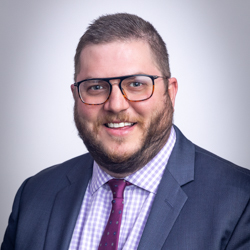Since its inception, the New Mexico State Opioid Response initiative has pioneered ways to address and increase treatment for opioid use disorder (OUD).
A recent success is the development of a full-spectrum model to provide substance use treatment along with a range of primary and specialized health care services in Rio Arriba County, one of the hardest-hit communities in the nation for people with opioid use disorder.
The University of New Mexico Department of Psychiatry & Behavioral Sciences is partnering on the comprehensive and low-barrier approach with the Mountain Center in Española, N.M., which already provides comprehensive harm reduction, counseling and case management.
The Mountain Center is also a syringe services provider (SSP). The UNM team brings expertise in preventive medicine, psychiatry and addictions. The program’s objective has been to add these new services to the agency’s existing array so that people with OUD can easily access them in a setting where they are comfortable receiving care.

This project is important because it involves a novel approach designed to engage the community and deliver life-saving treatment and tailored services to a population that is stigmatized and historically difficult to reach.
"Amid an overdose crisis, this project is important because it involves a novel approach designed to engage the community and deliver life-saving treatment and tailored services to a population that is stigmatized and historically difficult to reach,” says Richard Gadomski, MD, who helped get the project started along with colleagues Julie Salvador, PhD, and Snehal Bhatt, MD. “This full-spectrum model does it all in a location they already trust, thereby increasing access and removing as many barriers as possible."
Some of the new services include prescribing medications for OUD and screenings and treatments for a variety of conditions such as human immunodeficiency virus (HIV), hepatitis C (HCV) and sexually transmitted infections. Additional services include pregnancy screening, birth control and a limited array of basic primary care services, such as non-insulin dependent diabetes management and hypertension management.
When necessary, the team refers patients to the local federally qualified health center. In addition, UNM’s Project ECHO, provides support and consultation to local providers for conditions such as HIV, HCV, OUD and other co-occurring behavioral health conditions.
Preliminary results from Aug. 1, 2020 through Aug. 31, 2021, show the program’s success. During its first year, a total of 137 patients visited the low-barrier, full-spectrum clinic. Fifty-six patients visited the clinic once, 81 patients returned for at least one visit, and the greatest number of visits for a single patient was 52.
During their visits, a subset of patients obtained prescriptions for buprenorphine, a medication used to treat opioid dependency. Some patients visited the syringe exchange for a buprenorphine prescription.
The collaborative team treated conditions including PTSD, anxiety, depression, bipolar disorder, schizophrenia, schizoaffective disorder and concurrent substance use disorders involving methamphetamine, alcohol and benzodiazepines. Notably, the medical providers also treated and targeted prevention for infectious diseases related to injection drug use, such as HCV and HIV.
The partnership with the Mountain Center has been key to the project’s success. The agency has many psychosocial and harm reduction strengths, including its designation as an SSP. It has earned a strong reputation and trust among those living with opioid use disorder.
Another important contributor to the program’s success centers on making access to care as simple as possible and meeting people where they are at any given moment. Specifically, even if a patient does not have an immediate interest in medication management, the team allows any client with a tacit diagnosis of OUD to enroll and meet the case manager and provider.
Doing so gives them access to the full spectrum of services. It also helps the provider to screen for various pathologies, conduct motivational interviewing to explore the client’s ambivalence around medication for OUD, and provide supportive therapy and psychoeducation.
